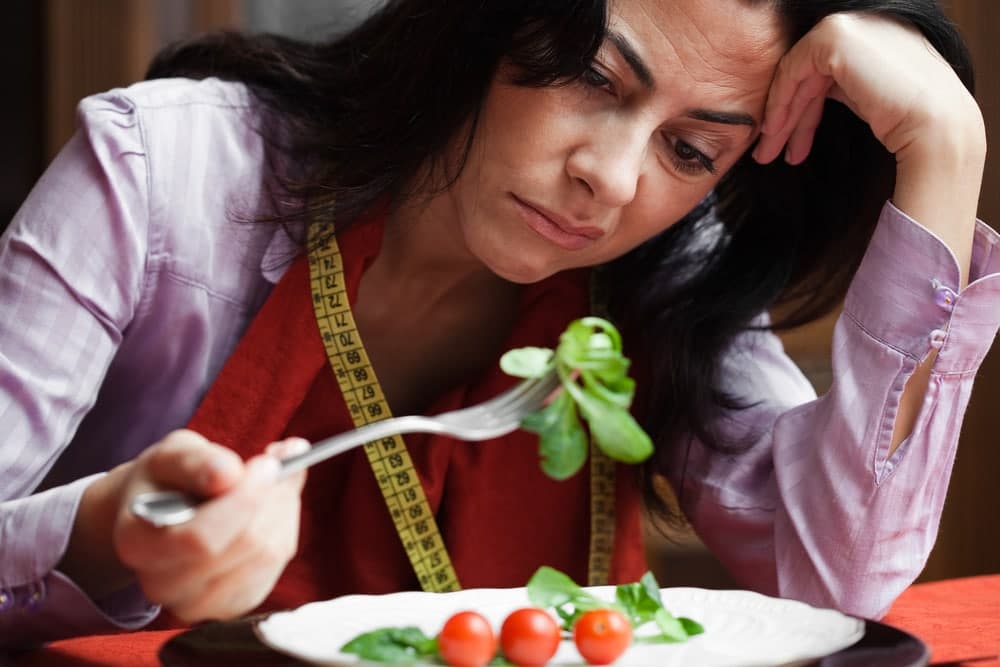
“Diets don’t work”. You’ve probably heard this remark many times from disappointed family members and friends, after “falling off the wagon” yet again after another failed diet attempt. But did you know that they’re actually right – dozens of scientific studies are now backing up the idea that normally diets ultimately lead to more weight gain, rather than any expected weight loss. How’s this possible?
Combine the psychological effects of depriving your body of enough calories, with the psychological feelings of deprivation, and diets create the perfect storm for inevitable overeating, or what some people like to call the “binge/restrict cycle”. The second you tell yourself something is off limits, and that you must restrict yourself in order to make up for damaged done in the past, the more you’re going to crave the very things that you now consider forbidden. It’s human instinct to want to feel fed, secure and safe. And diets do the opposite: they make us feel vulnerable, cranky, fearful, deprived and left out.
How Diets Sabotage Your Goals
The human body is very smart: when it isn’t receiving the amount of calories or nutrients it needs; it has multiple mechanisms for making sure it gets it. If your metabolism requires 2,000 calories daily for example, but you’re trying very hard to stick with just 1,500, you’ll soon find a few things happening:
- You’re increasingly hungry
- You’re tired
- Food suddenly looks more appealing than ever
- You’re having trouble concentrating on other things besides eating
Taking in less calories than you need triggers uncontrollable biological responses including: increasing your “hunger hormones” like ghrelin, lowering hormones that make you feel satisfied like leptin, making you more sluggish than usual so you don’t move around much, occupying your thoughts with high-calorie foods so you seek them out, and making it hard to sleep so that the next day you’re lazier than ever.
Another one of the biggest obstacle getting in the way of diets working? A lack of willpower. But that’s not because dieters are lazy, easily influenced and mentally weak. On any given day, you really only have so much willpower to go around. It’s unavoidable that your job, family obligation, commute, household chores, finances, etc. are going to suck up a lot of that available willpower. While you might start the day off strong – resisting donuts at the office, a cookie after lunch, or saying no thankyou to birthday cake – come the end of the day, all bets are probably going to be off.
Busy days, stress and the nuances of everyday life leave us feeling needy, tired and depleted. For all of human history people have turned to a good meal to lift their energy and moods. There’s nothing inherently wrong with this – food is desirable and as humans we are meant to chase after it and crave it. Biologically, experts believe that we don’t have any built-in mechanisms to keep us from wanting to eat, unless we actually feel satisfied enough because we’ve recently eaten something enjoyable.
In a way, we are hardwired to want food that is available, tastes good and is presented to us, and as you’re probably aware, in our modern society there’s basically no time of day when food isn’t available. You might be able to turn down tempting treats 10 times in one day, but all it takes is one time of you saying “yes” to make you feel like a failure and that you’re back to where you started (or even worse, because now you feel guilty too).
What To Do Instead of Dieting
Instead of telling yourself you can’t eat certain things, try to put a positive spin on the situation and focus on adding healthierfoods in your daily diet. Many people find it a lot more enjoyable and sustainable to add healthy foods – like more vegetables and healthy sources of fats – into their diet rather than needing to consciously dodge some of their familiar foods. To make healthy eating easier, keep the foods you want to eat more of in a convenient location (like already prepped and in your refrigerator), be willing to keep trying them prepared in new ways, and stay open winded. You might think you don’t like vegetables for example, but maybe you’re writing them off too soon and just haven’t tried them cooked a way you like.
You might think this strategy of “adding in” only causes someone to eat more in general, the opposite of what’s desired, but that’s not really how it works. People wind up “crowding out” the unhealthy foods without even needing to focus on it too much, since they feel fuller from eating more healthy foods packed with fiber, protein and healthy fats than they’re used to.
Once nutritional deficiencies are also corrected – such as being low in certain electrolytes like magnesium or potassium which mostly come from eating veggies and fruit – people tend to feel much better, more energetic and inspired to be more active and to keep eating healthfully. While they used to feel sluggish, bloated, tired and unmotivated, they start to notice that eating better really does make them feel better, regardless of how it might be effecting their weight. That’s the best motivation of all to stick with an overall solid diet, since any extrinsic goal of wanting to look thinner will lose its appeal pretty quickly.